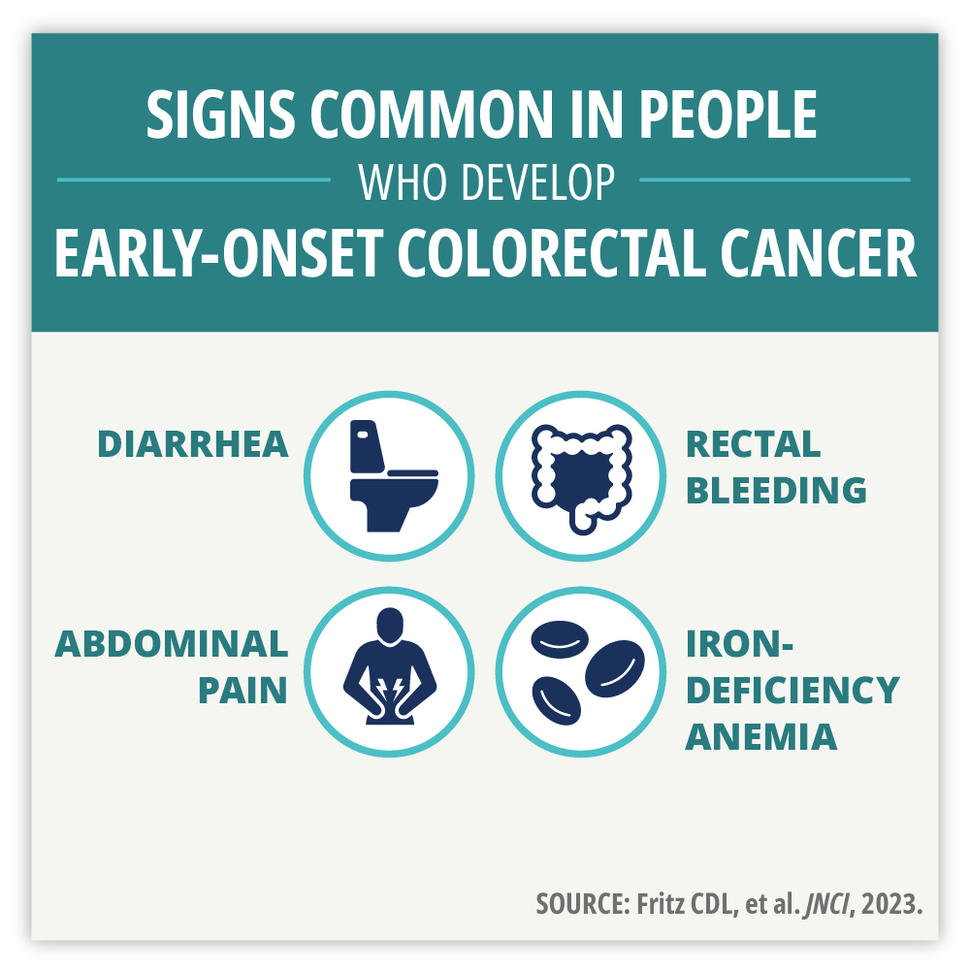4 Warning Signs of Colorectal Carcinoma in Young Adults
Introduction:
Colorectal cancer, once considered a disease of older adults, is increasingly affecting younger populations at an alarming rate. With rising incidence rates among individuals under 50, it's imperative to understand and recognize the warning signs of this potentially deadly condition.
A recent study has shed light on four crucial indicators that could lead to early detection and better outcomes for younger adults facing colorectal carcinoma.
(Image Source: Cancer Center City of Hope)
Understanding the Trend:
Historically, colorectal cancer has been more prevalent in older demographics, but recent decades have witnessed a concerning surge in cases among younger adults.
Despite this trend, routine screening for colorectal cancer typically begins at age 50, leaving many young individuals vulnerable to undiagnosed disease.
The Study's Revelation:
A comprehensive study, analyzing data from over 5,000 early-onset colorectal cancer patients, has identified four key warning signs associated with the disease.
These signs include:
(Image Source: National Cancer Institute )
-Abdominal pain,
-Rectal bleeding,
-Diarrhea, and
-Iron deficiency anemia,
which were significantly more prevalent in individuals diagnosed with colorectal cancer compared to controls.
Why Is Colorectal Cancer Rising Rapidly among Young Adults?
- A concerning trend of increasing incidence rates among younger adults has been observed since the 1990s, accompanied by a rise in mortality rates from the disease.
- Factors contributing to this rise include a lack of understanding about the causes and biology of early-onset colorectal cancer, as well as challenges in prevention and treatment approaches tailored to this demographic.
- While certain genetic conditions predispose individuals to colorectal cancer at a young age, environmental factors such as
- Diet,
- Inflammation, and
- Exposure to chemicals
- Unhealthy dietary habits,
- Obesity,
- Sedentary lifestyles, and
- Disruptions in gut microbiota
(Image Source: Journal of Translational Medicine. April 2017 )
- Environmental exposures and their interactions with genetic and epigenetic characteristics underscores the importance of comprehensive research in understanding early-onset colorectal cancer.
Implications for Early Detection:
The study's findings underscore the importance of raising awareness among both patients and healthcare providers about the potential signs of colorectal carcinoma in younger adults.
Recognizing these warning signs and seeking prompt medical attention can lead to earlier diagnosis and potentially life-saving interventions.
The Urgency of Early Diagnosis:
Early detection of colorectal cancer is paramount for improving survival rates and reducing the need for aggressive treatments that can significantly impact a young person's quality of life.
With timely intervention, the chances of successful treatment are substantially higher, emphasizing the critical role of early diagnosis in combating this disease.
Accessible Screening Options:
In some cases, healthcare providers may recommend at-home stool tests as a non-invasive screening option for individuals exhibiting warning signs of colorectal cancer.
These tests offer a convenient and affordable means of screening, potentially identifying at-risk individuals who may benefit from further evaluation.
Future Directions:
While the study provides valuable insights into early detection strategies for colorectal carcinoma in young adults, further research is needed to better identify individuals at increased risk within the population. Continued efforts to collect data and refine screening protocols will be essential in addressing this growing public health concern.
Conclusion:
Colorectal cancer is no longer just an older adult's disease, with increasing incidence rates among younger populations necessitating heightened awareness and proactive measures for early detection. By recognizing and acting upon the warning signs identified in this study, young adults can take control of their health and potentially mitigate the impact of colorectal carcinoma through timely intervention.



Comments
Post a Comment